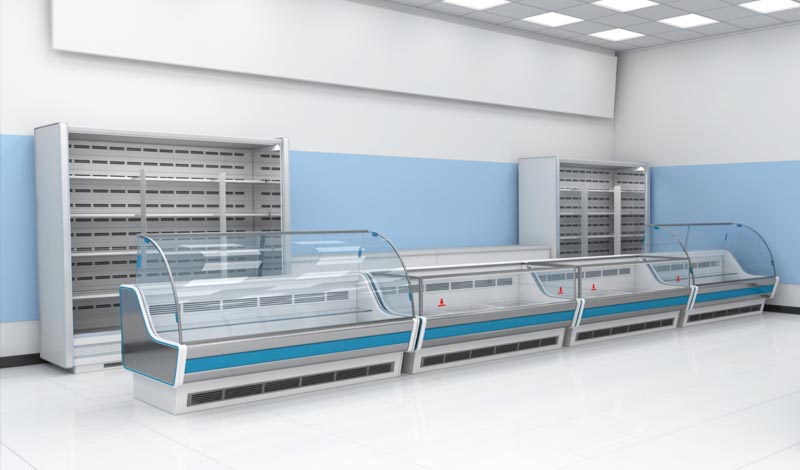Conventional refrigeration systems are configured as centralized parallel systems and require a large footprint with long line runs, resulting in a lot of extra heat being generated. They also require large refrigerant charges and can have high leak rates. Low suction temperatures reduce their efficiency.
Microdistributed (MD) refrigeration systems, where each of the display cases and walk-in units is a water-cooled, self-contained unit, offer a cost-saving alternative for grocery stores, cold-storage facilities, industrial cooling processes and outdoor rooftop installations.
The benefits really add up
These systems have more compressors with lower horsepower than conventional units. Each compressor is located close to the refrigeration load. Advantages of MD systems include:
- Reduced energy consumption.
- Installation is fast, easy and less expensive .
- Small refrigerant charge and low leak rates.
- Easy to maintain.
- Low-noise compressor operation.
- High reliability and long life.
- Provides extra capacity for peak hours.
Design aspects of MD systems offer some advantages as well. Only the chiller is affected by outside ambient temperature. Closer compressor suction improves energy efficiency and exact suction matching enables alternative expansion devices. Cooling lines and condensers are out of sight and water lines are located under the floor.
One of the biggest advantages of MD systems is that they can use R290 natural refrigerant (propane), which has an extremely low global warming potential.
Factors to consider
There is an R290 refrigerant charge size limit (maximum 5.3 ounces per module), which affects the case configuration, and a higher first equipment cost. R448A refrigerant is also used. A water-cabled condenser is also required. Other things to consider include:
- Current efficiency of small hermetic scroll compressors affects total energy consumption.
- R290 compressor supply is limited. It requires chilled water of 50°F or less.
- Micro systems aren’t as easy to adapt to large stores.
- Open display cases aren’t an option because doors are required.
- Because propane is flammable and heavier than air, approval from local authorities is required.
- Walk-ins require a 10-ounce charge and need special approval, adding installation time.
- Use glycol mix to avoid freezing (potable water can be used if clean enough).
Because minimum heat is produced, reheating aisles for comfort may be required though at minimal additional air-conditioning load.
The technology continues to evolve with improvements in efficiency, new refrigerant blends with reduced flammability, reduced system costs and motors approved for flammable gases.
